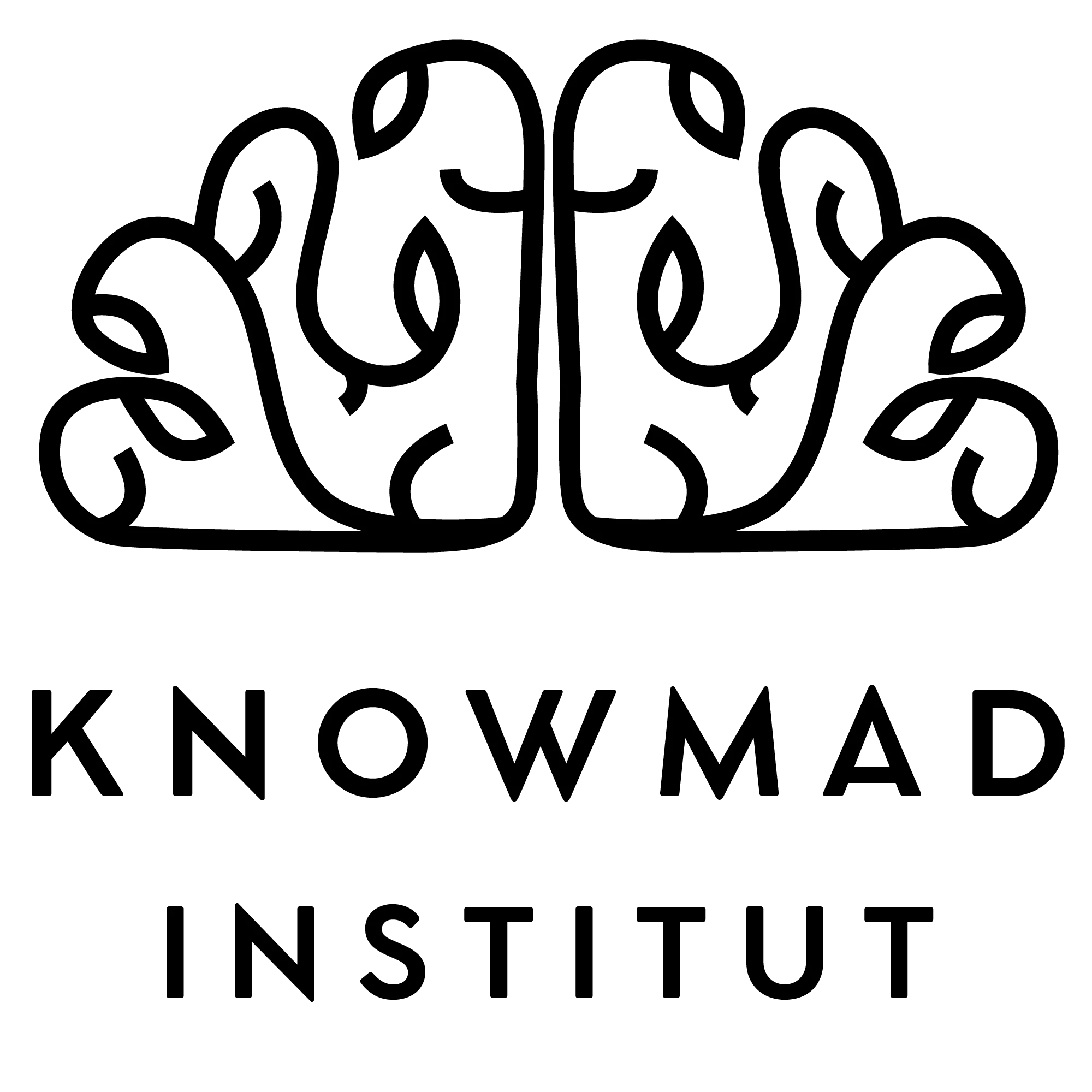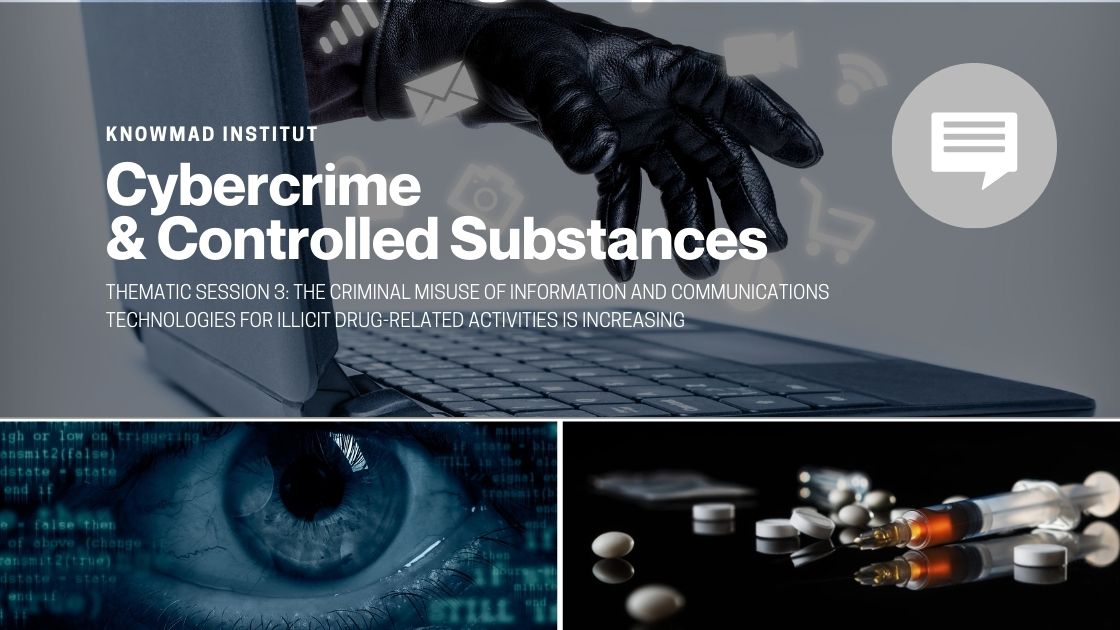Knowmad Institut Statement during the CND 2021 Thematic Discussions
October 21, 2021
As part of the delegation of the Vienna NGO Committee On Drugs (VNGOC), an organization in consultative status with ECOSOC, today I have the privilege of speaking on behalf of the European Institute for Multidisciplinary Studies on Human Rights and Science – Knowmad Institut.
After twenty-four months into the global pandemic, the consumption and trafficking of psychoactive substances has increased, COVID-19 has driven technological innovation and adaptability to a global market in which amphetamine-type stimulants and New Psychoactive Substances (NPS) are available everywhere, which could trigger accelerated changes in drug use patterns and have implications for public health (UNODC,2021).
The trafficking of illegalized substances through Information and Communication Technologies (ICT) is becoming more common every day. Being the darknet and “cryptomarkets” a remarkable innovation in the illicit market of controlled substances (EMCDDA & Europol, 2017). However, the most popular social media have evolved and avoid the need to enter into the darknet in order to access substances (EMCDDA, 2021).
The information that can be analyzed from trade data in darknet marketplaces and social media platforms can lead to the development of useful methods for detecting newly emerging psychoactive substances. That is why, in the quest to consolidate safe spaces on the internet, it is important that law enforcement and government entities do not forget that privacy and anonymity are a fundamental right in our hyper-connected societies.
Two facts force us to rethink our world: coexistence with seemingly limitless artificial minds and memories, and our growing interest in modifying and expanding our own limited human minds. At the crossroads of these critical issues are privacy and dignity.
Then, it becomes evident the need to rethink current strategies and assume the priority of focusing law enforcement resources on the skills of the incipient specialized cybercrime units, the time and funding to investigate the most pernicious cybercrimes that threaten the population and not the recreational substance markets.
Recent studies indicate that people who use drugs (PWUD) and who access to the substances through the use of Information and Communication Technologies (ICT) (Aldride et al., 2018) tend to adopt harm reduction practices, and promote “responsible use” in which self-determination and management of pleasures with privacy and increased safety by being mostly in their places of residence (Mason & Bancroft, 2018).
Likewise, law enforcement practices must be nuanced without losing focus on real threats, such as the rise of the opioid market and counterfeiting of controlled drugs. Implementation is problematic when the market is not regulated by States, but by Organized Crime; which makes us raise once again the need to respect the self-determination of individuals, to seek a balanced and humanitarian regulation of illegalized substances to educate and reduce harm in our world which is a one young world.
So from the European Institute for Multidisciplinary Studies on Human Rights and Science – Knowmad Institut we encourage this commission and the Member States to study the feasibility of realizing a convention on cybercrimes with a specific provision towards crimes related to controlled substances, which would represent a useful first step to recognize the negative consequences and learnings from the current approach.
Training for law enforcers on the risks associated with general withdrawal approaches to recreational substance markets should take into account health professionals with expertise in harm reduction, civil society actors such as the Rome Consensus 2.0 coalition, and should be accompanied by the invaluable support of the Cybercrime, Anti-Money Laundering and Counter-Financing of Terrorism Department.
We appeal for a multidimensional approach to cybercrime related to drugs (especially recreational drugs) and respond accordingly with a humanitarian vision that puts people’s dignity and safety first.
Finally, we strongly urge you and the governments you represent to take awareness and action to ensure a healthy transition during the adoption and standardization of emerging technologies in the fourth industrial revolution.
Rev. Martin Ignacio Díaz Velásquez, MSc. Oscar Hugo Espin García.
European Institute for Multidisciplinary Studies on Human Rights and Science – Knowmad Institut
References
- Aldridge J, Stevens A, Barratt MJ. (2018). Will growth in cryptomarket drug buying increase the harms of illicit drugs? Addiction. 2018 May;113(5):789-796.
- European Monitoring Centre for Drugs and Drug Addiction (2021), European Drug Report 2021: Trends and Developments, Publications Office of the European Union, Luxembourg.
- European Monitoring Centre for Drugs and Drug Addiction and Europol. (2017). Drugs and the darknet: Perspectives for enforcement, research and policy, EMCDDA–Europol Joint publications, Publications Office of the European Union, Luxembourg.
- Masson K & Bancroft A. (2018). ‘Nice people doing shady things’: Drugs and the morality of exchange in the darknet cryptomarkets. Int J Drug Policy. 2018 Aug;58:78-84.
- United Nations Office of Drugs and Crime .(2021). World Drug Report 2021. Booklets 1-5. United Nations. Vienna








